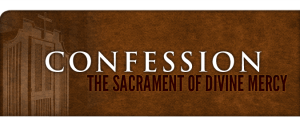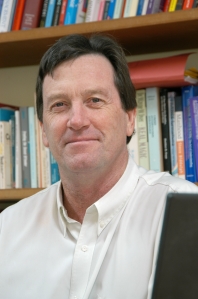
The Name of the Rose
Life in Spanish academia echoes the intransigent mentality of the Inquisition, writes expatriate Dutch academic Maarten Renes. Some Australian academics will relate.
To grasp Spain’s commitment with its academia, it’s useful to go back to Umberto Eco’s 1980 novel The Name of the Rose, a medieval murder mystery set in an Italian monastery which simultaneously functions as a scholarly treatise on semiotics and literary studies. It was translated into English in 1983, became an international bestseller and, made into a film by Jean-Jacques Annaud in 1986, also a box-office success.
In the novel’s postscript, Eco explains that its title’s cryptic central image, the rose, is so rich in symbolism that it has virtually turned into a semiotic wildcard. In the novel’s case, it is easy to read the rose as the monastery’s hidden library, stocked with copies of the Classics, some lost nowadays. Its location is painstakingly maintained secret to prevent its forbidden knowledge, at odds with reigning church beliefs, from being read and divulged.
The criminal investigation carried out by the travelling monk and scholar William of Baskerville so as to uncover the reasons for the inexplicable murders taking place at this location of Roman Catholic worship, worldly retreat and dedication to scholarly study finds an apt twist in the filmed version. It is ex-Bond Sean Connery who stars as the medial detective in a crossover between Sherlock Holmes and the 14th century monk William of Ockham, who laid down the rational principle of Ockham’s Razor—the simplest explanation for the facts is often the most reasonable, accurate and correct. This principle is also a major guideline for Holmes’ deductive reasoning, and applied by Baskerville to the logical unravelling of the monastery’s secrets.
The homonymous film largely does away with Eco’s semiotics, and concentrates on the mystery plot and the clash between modern notions of science and religious backwardness that underpins the former. A notion that is literally and metaphorically proffered to the film audience is that knowledge poisons the mind, and thus: the body. It is, ironically, a notion promoted by an old blind monk who has applied mortal venom to the corners of the last, nowadays lost copy of Aristotle’s Second Book of Poetics, causing havoc among his overcurious companions.
The film shows how Jorge’s lethal interventions, founded on an ardent defence of the Christian model of the universe and civil society, ties in with the general drift of medieval times; the Roman-Catholic Inquisition arrives at the monastery to take over from William’s successful logical probing into the community’s ills, and ‘solves’ the mystery through a regime of violence and fear without scruples.

Spanish Inquisition
The Inquisitor rapidly condemns the most vulnerable characters on the scene in order to exorcise heretic—read: unacceptable because unorthodox—behaviour: two monks, one mentally disabled and the other with an obscure sectarian past, and a hungry, thieving peasant girl are taken to the stakes after a violent session of torture that preys the desired confession and presumed guilt out of them. In a rebellious response to this barbaric regime, the poor girl is saved by the local population and the cloister burnt down to the ground, the wealth of knowledge guarded in its entrails forever destroyed—knowledge that would only be retrieved by the Renaissance fervour for Arab, Latin and Greek texts.
The rigour of the medieval Italian Inquisition was brought to further extremes by the Spanish Empire in Early-Modern times under the reign of King Philip II, who waged a Roman-Catholic crusade on Protestant Northern Europe. I still remember the patriotic history lessons I received as a teenager on the long Dutch War of Independence against Spain from 1568 to 1648, when the Dutch republic was finally recognised as an independent country, presumably to thrive as never before.
The reigning climate of religious and intellectual intolerance under Philip II was said to provoke the escape of many free-thinking intellectuals from territories under Spanish control to the Netherlands; this then would have contributed to the onset of an economic boom, famous Dutch ‘tolerance’ (far to be sought nowadays) and the Dutch Golden Age in literature, the arts, science etc. in the 17th century, boasting the likes of Rembrandt, Vermeer, Spinoza and Huygens.

The Nightwatch by Rembrandt (1642)
My country’s nationalistic tale of rebellion and resistance in defence of tolerance and open-mindedness forms part of the dark myth of Inquisitional Spain: in the latter, the self-defeating intellectual bleeding that took place in this period, which had started with the expulsion of the Moors and Jews by the Reyes Católicos (Catholic Monarchs) in 1492, is seen as a strategic error from which Spain never fully recovered and which, for better or for worse, hampered its participation in Modernity. No doubt Renaissance reality must have been more complex than this.
Nowadays, Spain is a puzzle of political factions cultures on the national and regional level, some more progressive and cosmopolitan others more conservative and provincial. There does survive, however, a strong reactionary undercurrent in civil society that is extremely wary of change and cultural difference which revives the spectre of La España Profunda or Negra—the orthodox ‘Deep or Dark Spain’ that won the Civil War (1936-39) against the Republicans, installed a fascist regime in connivance with the church and legal authorities that lasted for four decades, and survived the advent of democracy after Franco’s death in 1975.
The concept of ‘Deep Spain’ is echoed in the blind religious fervour and concomitant intolerance and distrust of worldly knowledge displayed in The Name of the Rose, whose reading/watching offers an apt metaphor for what is happening in Spanish universities nowadays. Drawing on the flower’s flexible semiotics, I take the rose to stand for the policing of academia in the name of a new Spanish creed: the Religion Of Scholarly Excellence or the ROSE—which aims not to improve but purge university staff through a confessional model of accreditation.
In the development towards a common European space of higher education (the Bolonia process), the Spanish government now forces all contracted university staff without tenure to go through the central filter of a specialised agency (ANECA) at the Ministry of Education and Science (MEC) in Madrid so as to be eligible for their current, temporary posts as well as for higher academic rank.
This centralised bid for scholarly excellence sounds laudable but proves arduous, time-consuming, patronising and counterproductive. It imposes a constant pressure to re/train, do research, lecture, participate in congresses and projects, and publish, which inevitably replaces quality with quantity through inoperable red tape requirements. Any item mentioned on a demanding, extremely detailed CV form has to be seamlessly certified with official documentation, in most cases provided with stamps and seals from the pertinent institutions, and with backup of supplementary photocopies of abstracts and first and last pages of book chapters, congress and journal papers and so on.
 The results of this red tape ordeal are converted in points on a rather arbitrary scale reminiscent of the worst in quantitative science so as to decide the applicant’s luck in commissions of obscure composition. The time and energy lost in this arbitrary process of assessment, both before and after submitting your papers, is horrendous and unimaginable.
The results of this red tape ordeal are converted in points on a rather arbitrary scale reminiscent of the worst in quantitative science so as to decide the applicant’s luck in commissions of obscure composition. The time and energy lost in this arbitrary process of assessment, both before and after submitting your papers, is horrendous and unimaginable.
The Inquisitional distrust displayed is enormous. Most of us that have to go through this torturous act of confession have many years of academic dedication to boast and therefore certify. One can understand some kind of independent inquiry into candidates’ qualifications, skills and experience for university posts in order to prevent favouritism and provincial backwardness in local universities, but not the kind of quasi-religious bureaucratic scrutiny engaged at present.
I concede that lack of academic mobility amongst universities is a typical Spanish ill, but mostly inspired by inadequate state funding, which binds upcoming scholars to the safety of their home (universities) to establish their careers. It is, unfortunately, the poison that has made the system ‘work’—up to now. Structural lack of funding is also revelatory of Spanish society’s deep distrust of academic knowledge and its fundamental adherence to a Roman-Catholic top-down organisation of civil society where a select few hold the keys to truth, resources and power.
No need to ask yourself why the Roman-Catholic church receives ample state funding by an undemocratic Constitutional pact between Spain and the Vatican, which turns the church into a state within the state. Imagine what we could achieve if this money were invested in academic research and innovation! There is a straight line from religious straight-jacketing to the confessional cross-examination now of people who have long proven their academic worth and dedication in return for appalling contractual conditions.
The blind criminalisation that is currently taking place in the name of the ROSE demands irrefutable, hairsplitting, multiple proof of academic activity reaching up to sometimes 20 years back. It is in the name of the ROSE that the intransigent mentality of the Spanish Inquisition has been resurrected against the most vulnerable factions of university staff.
In short, having been in close contact with the poison of worldly knowledge, you are guilty of heresy until proven otherwise, and pestered until you have conformed to the ROSE’s truth—the bible of scholarly excellence as the Ministry perceives it. Confess your sins and you might be absolved but burn at the stake if you resist. On paper Spain made the shift from religion to science as the referential model for understanding the world in the Modern Age but it appears old structures of thinking are difficult to defeat in a confessional state, even in these postmodern times, as they are re-applied to Science-as-Religion.
A lot of this harks back to the age-old problem of the centre and the margins, of effective democracy and self-management on the local levels. Franco is dead but his spectre haunts the margins relentlessly from the central state location and pulls them back into the national panopticum.
Javier Pérez Royo, a columnist in a widely-read national newspaper, recently addressed centralisation as one of Spain’s greatest endemic ills, hampering the country’s development. In his article “Incomprehensible prestige” he writes that “in Spain we have tended to equal centralisation to order, rationality and rigour in the management of public affairs while we have tended to associate decentralisation with the opposite.” Yet, empirical evidence shows that “[t]he unified and centralist state has been a disaster in our political, constitutional history … It has been an enormously authoritarian state … and consequently … very inefficient” (El País 19 March 2011: p.23, my translation). Why this has been so is not hard to guess.
Yet, my (and some of Javier’s) prayers for release may have been heard. We do have local assessment agencies for academic accreditation as well, set up by the autonomous, semi-federal regions of Spain. In the case of Catalonia, where I live, the procedure is simple: you hand in a standard CV stating all your academic merits, some basic documentation to support it—no stamps or seals required—some academic assessment reports and a signed statement of truthfulness.
The funny thing is that this does not lead to better but worse results: only 30% of the applications is granted a pass by the AQU, considerably less than in the case of the national agency, ANECA. How to read this? Are Catalan applicants really that badly prepared? Or is the initial vote of confidence just a smoke screen, and the civil servant’s ingrained distrust resurfaces when CVs are actually assessed? Or is the Catalan agency so strict in its criteria just to prove itself more serious than the central agency—a case of exalted regional nationalism, of being more Catholic than the Pope?
The result is that many of my colleagues believe it is a waste of time to go through the AQU. Theoretically this and the central agency do the same job, and should have similar results—but they don’t. A profound reflection on their (mal)functioning is due to rationalise things.
 My solution: the new Spanish creed of scholarly excellence requires the intervention of the likes of Sean Connery. In the best of the Scottish tradition, he shares Sherlock Holmes’ genius, efficiency and quick-wittedness and, on top, he’s well alive and frequently shows up in Marbella on Spain’s south coast, where he owns a villa. He’d be easy to approach over a good malt whiskey and probably willing to do us a favour for the good cause in between his games of golf and sunbathing. I know it’s heresy but I’d even clone him in his 00-Ockham part: having that kind of deductive reasoning and attitude pour over our CVs rather than local zealots applying bureaucratic and confessional procedures would provide better results.
My solution: the new Spanish creed of scholarly excellence requires the intervention of the likes of Sean Connery. In the best of the Scottish tradition, he shares Sherlock Holmes’ genius, efficiency and quick-wittedness and, on top, he’s well alive and frequently shows up in Marbella on Spain’s south coast, where he owns a villa. He’d be easy to approach over a good malt whiskey and probably willing to do us a favour for the good cause in between his games of golf and sunbathing. I know it’s heresy but I’d even clone him in his 00-Ockham part: having that kind of deductive reasoning and attitude pour over our CVs rather than local zealots applying bureaucratic and confessional procedures would provide better results.
He would certainly suffice to deal with the kind of academic check that is required on the local level. It’d also be more cost-effective and beneficial for an institution which is hard up for freedom of movement and qualified academic staff, chronically underfunded but ear-marked to lead the way out of Spain’s economic slump. ANECA and AQU should have no licence to kill, so let’s leave patronizing models behind and provide scholars with the means to realise their potential for the benefit of all. Ten years on the university payroll should owe me some credit rather than discredit; the only thing I’ll confess in the name of the ROSE is that I have little if nothing to prove after a decade in the academic trenches.

Dr Maarten Renes
Maarten Renes is an expatriate Dutchman who has lived and worked in Bacelona since 1987. He holds a PhD in English by the University of Barcelona and is assistant lecturer for the literature section of its Department of English. He is vice-director of the University of Barcelona’s interdisciplinary Observatory: Australian Studies Centre.
Tags: Academia, Catholic Church, Dutch Golden Age, Dutch Republic, Franco, Jean-Jacques Annaud, Name of the Rose, Philip II of Spain, Roman Catholic, Spain, Spanish Civil War, Spanish Empire











 The results of this red tape ordeal are converted in points on a rather arbitrary scale reminiscent of the worst in quantitative science so as to decide the applicant’s luck in commissions of obscure composition. The time and energy lost in this arbitrary process of assessment, both before and after submitting your papers, is horrendous and unimaginable.
The results of this red tape ordeal are converted in points on a rather arbitrary scale reminiscent of the worst in quantitative science so as to decide the applicant’s luck in commissions of obscure composition. The time and energy lost in this arbitrary process of assessment, both before and after submitting your papers, is horrendous and unimaginable. My solution: the new Spanish creed of scholarly excellence requires the intervention of the likes of Sean Connery. In the best of the Scottish tradition, he shares Sherlock Holmes’ genius, efficiency and quick-wittedness and, on top, he’s well alive and frequently shows up in Marbella on Spain’s south coast, where he owns a villa. He’d be easy to approach over a good malt whiskey and probably willing to do us a favour for the good cause in between his games of golf and sunbathing. I know it’s heresy but I’d even clone him in his 00-Ockham part: having that kind of deductive reasoning and attitude pour over our CVs rather than local zealots applying bureaucratic and confessional procedures would provide better results.
My solution: the new Spanish creed of scholarly excellence requires the intervention of the likes of Sean Connery. In the best of the Scottish tradition, he shares Sherlock Holmes’ genius, efficiency and quick-wittedness and, on top, he’s well alive and frequently shows up in Marbella on Spain’s south coast, where he owns a villa. He’d be easy to approach over a good malt whiskey and probably willing to do us a favour for the good cause in between his games of golf and sunbathing. I know it’s heresy but I’d even clone him in his 00-Ockham part: having that kind of deductive reasoning and attitude pour over our CVs rather than local zealots applying bureaucratic and confessional procedures would provide better results.







































Recent Comments